Our Blueprint Works
From idea to innovation to impact, VentureWell is fostering the next generation of student entrepreneurs and helping to bring their big ideas to life.
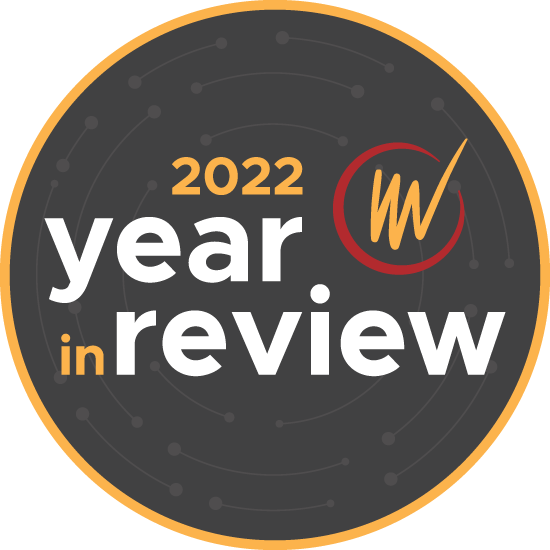

From idea to innovation to impact, VentureWell is fostering the next generation of student entrepreneurs and helping to bring their big ideas to life.
in follow-on funding raised by early-stage ventures
was granted to higher education initiatives
paid consultants worked with us on the RADx initiative
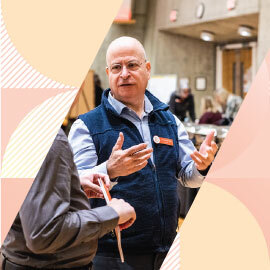
Recently, I found myself thinking back to what VentureWell was like in 1996. It was a year of significant breakthroughs in science and technology; NASA embarked on the STS-72 Space Shuttle Mission, where six astronauts were tasked with an ambitious and complicated job. The first fully sequenced DNA was obtained from a multi-celled organism—in this case, yeast. Dolly the sheep was born that year, becoming the first mammal to be successfully cloned. And at Stanford University, would-be Google co-founders Larry Page and Sergey Brin were just starting to develop their search engine, which they initially dubbed “BackRub.”
I was inspired by the idea of small teams coming together to achieve enormous feats. Our team was small then, too, and our ambitions felt just as colossal. We were a nimble group at the time of our founding, working out of an office that wasn’t much bigger than a cramped spaceship or college dormitory. Like these other intrepid visionaries, we were driven to inspire change through innovation, and we were making big strides even then. I realized, as I reflected on our progress, a simple yet satisfying point: VentureWell’s blueprint works.
We’ve seen enormous growth in the startups we support, such as AeroShield. Co-founder Elise Strobach was an E-Team grantee working to develop a glass aerogel material (like Styrofoam) that lets in light through windows but retains heat—revolutionizing the way we think about solar energy. Their team won the 2021 American-Made Solar Prize Round 4 for their work, which included an award of $500,000 toward the commercialization of the product, further demonstrating how crucial it is to support innovators in the early stages of their development.
That’s just one example. Across the innovation and entrepreneurship (I&E) ecosystem, we’re seeing the impact of our 25+ years of work. We transformed on-campus innovation systems. We supported faculty who are influencing the next generation of sustainable innovators. We partnered with federal agencies that are accelerating science and tech I&E across the country. And we closed 2022 stronger in our size, scope, impact, and financials, thanks in large part to long-standing relationships with our partners. Our foundation here at VentureWell is resilient, and we continue to evolve and thrive.
Recently, we took a deep dive into analyzing all of our current work, identifying four themes that drive all of what we do: inclusive innovation, sustainability, growth, and learning. This has allowed us to hone in on what’s working as we expand our capabilities and advance our goals to create more equitable ecosystems and opportunities for diverse innovators.
We still feel like those ’90s STEM visionaries—looking to the future, and working together to solve some of the world’s greatest challenges.
Yours in innovation,
Phil Weilerstein
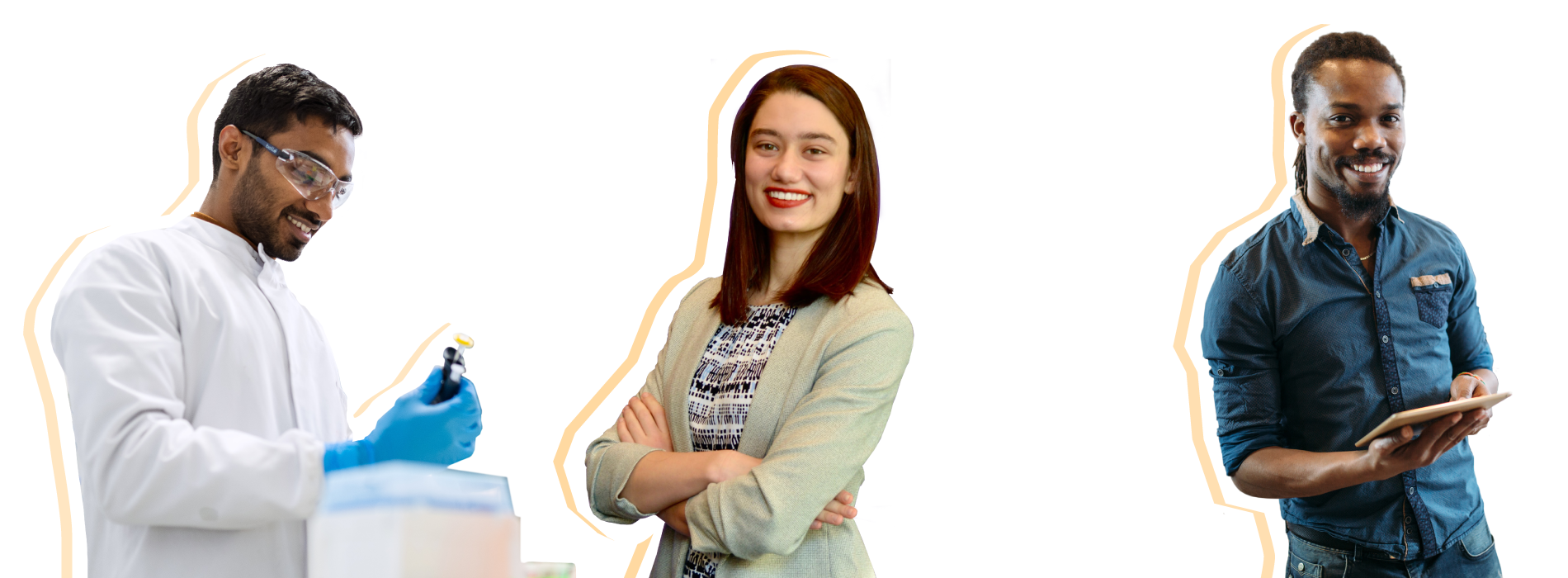

in support stipends awarded to innovators from low-income backgrounds
innovators benefited from these stipends
accepted proposals from minority-serving institutions
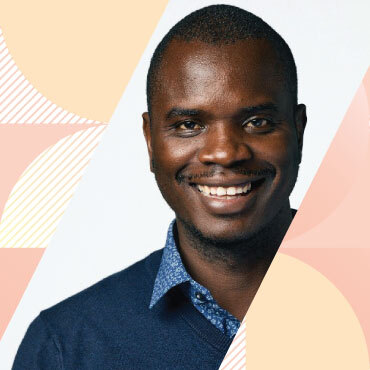
Entrepreneurship is an exciting, complex, and demanding pursuit, and part of pursuing the path of building a business is being willing to take risks. However, sometimes there are fundamental barriers to entrepreneurship that are hard to overcome through grit alone. Innovators often have to keep a steady-income job in order to be able to afford funding for materials and physical prototyping, equipment, and legal support, which can have a significant impact on their ability to focus on developing their ventures and pursuing additional funding while enrolled in school full-time.
In 2022, in an effort to reduce some of these financial challenges for students, we partnered with Qualcomm to create the Innovator Stipend Program. Together, we awarded stipends ranging from $1,500 to $4,000 to 19 individual E-Team grantees. These funds helped our student entrepreneurs advance their inventions, giving them the breathing room they needed to develop their products while simultaneously juggling the fiscal responsibilities of school and life—with the aim of further narrowing the patent diversity gap.
Of the stipend recipients, 11 identified as female or another gender identity, and four identified as an underrepresented race or ethnicity. They reported feeling more motivated and confident in continuing to plan and launch their businesses after receiving this extra financial boost. They used the stipend in a wide variety of ways—filing for a patent was at the top of the list—and they were also able to pay for essentials like housing and groceries while staying focused on their venture.
Continuing to open pathways is beneficial not just for the innovators themselves, but for those who will benefit from the life-changing solutions they’re creating. Reducing blindness for underserved patients in low- and middle-income countries is at the heart of stipend recipient Jordan Shuff’s work as a part of E-Team Visilant at Johns Hopkins University. Visilant recently took third place in the 2022 $100K New Ventures Competition for its innovation in the healthcare and life science track, moving it one step closer to making its invention a reality.
After initially piloting a smaller-scale version of the Innovator Stipend Program, we were able to continue offering support due to Qualcomm’s generosity and alignment with our shared goal of fostering inclusive innovation. We continue to be inspired by these resilient student entrepreneurs and believe in removing barriers for those who are already taking a big risk.
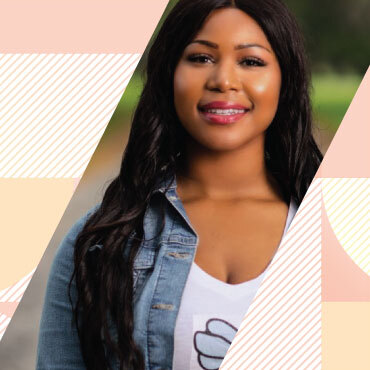
Climate change, human rights, poverty, public health crises, and unequal access to quality education are complex social challenges that impact everyone—but especially those from underserved communities with limited access to technology and infrastructure. That’s why we joined with Verizon and Clinton Global Initiative University (CGI U) to deliver the Forward for Good Challenge, which addresses these issues by encouraging teams of undergraduate and graduate students to leverage 5G cellular and other cutting-edge technology to advance equity within the US.
The 12 winning teams, which received over $285,000 in total funding, enrolled in our E-Team Program and took part in our Pioneer entrepreneurship training workshop, further developing impactful solutions. The teams traveled to the Clinton Foundation offices in New York City to attend the workshop, receiving hands-on entrepreneurial training and mentorship on value proposition development, intellectual property, competitor analysis, and more. Each team won $5,000 in grant funding, and each individual innovator received $8,500 to offset living expenses over the summer, ensuring that all winners would be able to focus a majority of their time on the effort.
Seven finalist teams competed in a pitch event in September, each showcasing their progress, accomplishments, and learnings to the Challenge partners. The team of judges—Phil Weilerstein, VentureWell President and CEO; Chelsea Clinton, Vice Chair of the Clinton Foundation; and Abraham Arencibia, Verizon Executive Director—selected three winning teams to receive an additional $20,000 in funding and the opportunity to advance to Propel, the second stage of the E-Team Program.
BEEnevolent is developing high-tech beehives that operate with minimal intervention, with the goal of increasing honeybee populations and boosting pollination; Gabb Global is advancing a virtual reality program to improve accessibility and effectiveness of immersive language learning experiences for ESL students; and READI is creating virtual reality and in-person instruction to give young adults entry-level workforce skills and certificate training.
These Forward for Good Challenge participants shared that their perspectives have changed significantly since they took part in the program. Before, many reported struggling to imagine being CEOs or leaders at companies. They couldn’t envision themselves where they are today: with a greater sense of empowerment and a confidence in their ideas and business skills. For the first time, many of these innovators felt like entrepreneurship could be a reality for them, and that is ultimately our goal as their support system.
“Growing up in foster care, I realized at an early age how much impact one caring person can have on someone’s life,” said Sade Shofidiya, founder of BEEnevolent. “As I took advantage of the opportunities afforded to me by many people along the way, it dawned on me that I, too, could be a part of the chain of caring people.”
Thanks to our partnerships with Qualcomm, Verizon, Clinton Global Initiative University—and our continued work with The Lemelson Foundation across the E-Team Program—we’re recruiting diverse applicants and removing barriers to accessing our programs. These early-stage innovators are ready to embark on their journey to market—and to changing the world.
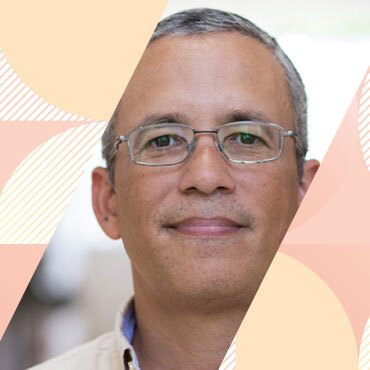
A diverse collection of perspectives and increased funding are the powerful combination needed to drive innovative and equitable solutions to today’s complex social and environmental problems. We are addressing this head-on by committing to awarding more grant funding to minority-serving institutions (MSIs), particularly Tribal Colleges and Universities (TCUs), Historically Black Colleges and Universities (HBCUs), predominantly Black colleges and universities, and Hispanic-Serving Institutions (HSIs). We’re also working to support more faculty who identify as members of one or more groups who are underrepresented in science and tech innovation and entrepreneurship, including Black, Latinx, Indigenous people, women of any racial background, and those from low-income backgrounds.
In 2022, we awarded over $307,000 in total grant funding through individual grants of up to $30,000; six of our 13 Course & Program Grants—accounting for 41% of all accepted proposals—went to minority-serving institutions, many of which were awarded VentureWell funding for the first time. These faculty and staff grantees are developing programs and courses that offer inclusive support of early-stage student innovators and integrate sustainable design concepts into their curricula.
For Farzaneh Eftekhari from the University of Texas at Arlington, that means connecting students with the fundamentals of the product development process through a new course that covers topics like human-centered design, consumer behavior, virtualized customer experience, branding strategy, and packaging design.
Dr. Javier Rodríguez, from the University of Puerto Rico-Río Piedras, is focused on launching a new program that offers innovative approaches to designing resilient dwellings and cities. He’s inviting environmental design and architecture undergraduate students to develop solutions that will mitigate the effects of climate change, specifically those faced by residents of the Caribbean region.
Our grantees are committed to developing new and exciting ways to shape the next generation of entrepreneurs, and they come from a variety of backgrounds. In 2022, five out of the 13 funded proposals were women-led, and nearly all funded courses involved collaborative, multidisciplinary faculty teams. Smaller colleges, including community colleges, were also recipients of five grants. Two Dallas, Texas-based schools—large research institution Southern Methodist University; and Paul Quinn College, an HBCU—received a grant for a partnership program focused on community-based sustainability projects.
This work can be best exemplified by a report by Engine—a nonprofit technology policy, research, and advocacy organization—that states there is currently a great need to “ensure innovation education resources and programs are available to underrepresented students regardless of race, gender, or geography.” By centering equity in our work, we hope to change the face of innovation and entrepreneurship at higher education institutions across the nation, helping to advance on-campus ecosystems, and leveling the playing field through funding and collaboration.
E-Team cohort Spring 2022
Qualcomm Innovator Stipend recipient
Awardee of the Sustainability Encouragement & Enrichment Development (S.E.E.D.) Fund
Learn how our E-Team Program helped Green Fertilizer clarify the company’s vision and mission to address food insecurity in underresourced communities with a solar-powered fertilizer system.

“I went through every piece of content in my curriculum. What I found was work from a lot of white men. When I started looking for writers and speakers who [weren’t] just another white man, I found that I ended up with better content.”
Jacen Greene, Co-Founder and Assistant Director of Portland State University’s Homelessness Research and Action Collaborative
Greene is a 2018 Course & Program grantee and contributor to our publication Embracing Catalytic Events for Change, part of our Advancing Equity: Navigating New Terrain series.
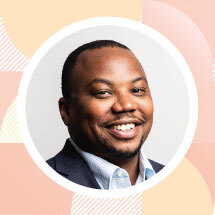
“From program design, outreach, and delivery, we are addressing systemic and inherent barriers that prevent underrepresented groups from participating in the innovation economy. Our nation’s competitiveness demands it and our innovators expect it.”
Terik Tidwell, Program Director of Inclusive Innovation at VentureWell

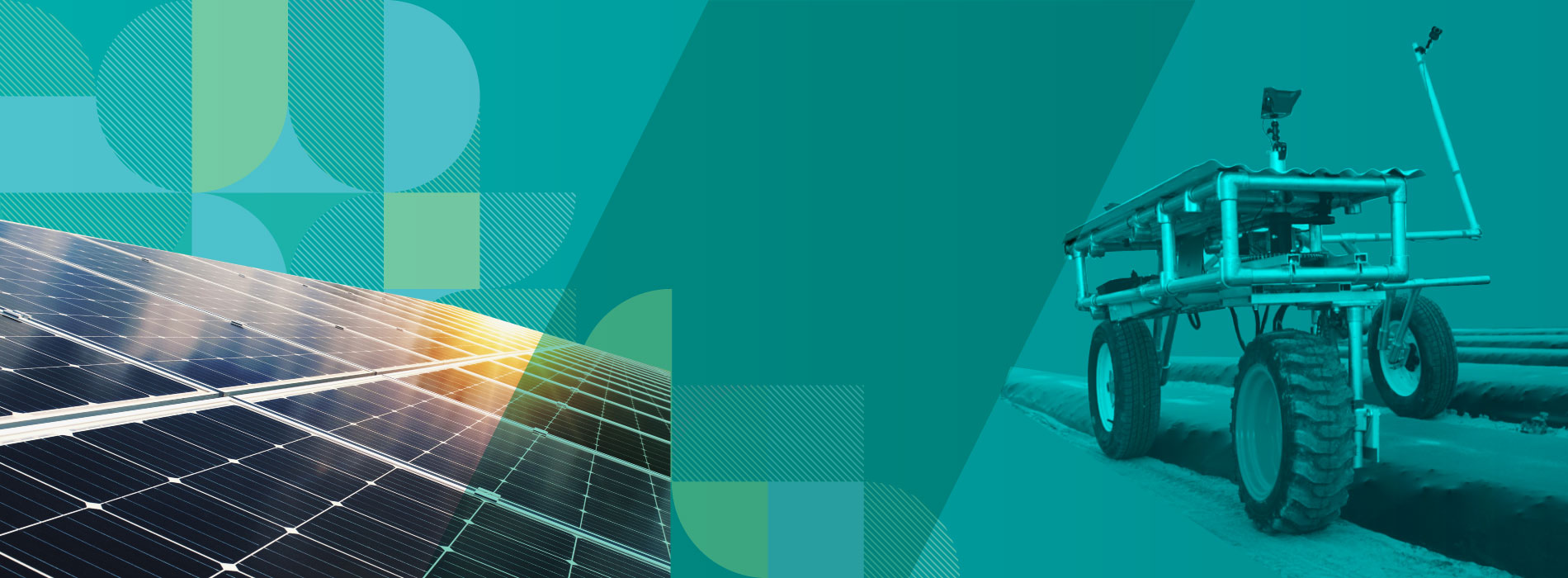
total follow-on funding raised by cleantech innovator teams
registered for or attended our environmental-focused training
climate-focused innovators made the 2022 Forbes 30 Under 30 list
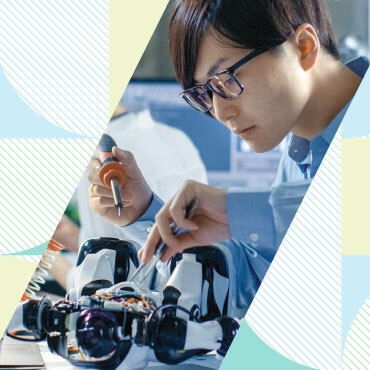
There is a widespread movement to embrace environmental and social responsibility across industries—though sustainable design is often notably absent in STEM curricula, where sustainable literacy is needed most. We’ve worked in partnership with The Lemelson Foundation for over three years on the Engineering for One Planet (EOP) Initiative, which provides faculty and staff in the STEM fields with the tools necessary to teach and foster sustainability for a new generation of student innovators.
The EOP Framework is the result of gathering information from hundreds of conversations, interviews, and surveys with subject matter experts from academia, nonprofit organizations, government officials, and industry professionals. In 2022, many of those dedicated participants convened for the EOP Scaling for Impact Workshop. We virtually hosted over 100 community members hailing from 25 states and 13 countries, representing a diverse set of engineering backgrounds. During the workshop, participants collaborated on building a five-year roadmap to transform the national engineering curriculum through two major avenues: instilling in all future engineers across disciplines the critical skills and principles of environmental and social sustainability, and prioritizing justice, equity, diversity, and inclusion (JEDI) practices.
“I recently had the opportunity to review an EOP grant proposal from a university seeking funding to continue the excellent work they’ve done to date incorporating the EOP Framework into their curriculum, and I’m thrilled to see the ideas proposed,” said Shawn Hunter, the Global Sustainability Director at DuPont and former Chemical Engineering Professor at the University of Michigan. “Broader implementation and adoption of the EOP Framework will help tomorrow’s engineers design the sustainable society that we all seek.”
We’re working to reach even more institutions to facilitate this initiative, and this past year, five pilot schools across the country were chosen to receive a stipend in order to foster communities of practice. Those institutions include Arizona State University, Oregon State University, the University of Central Florida, the University of Maryland, and Villanova University. All participants are taking a unique approach to curricular changes on their campus, and will share their learnings and resources by the end of the pilot program.
It’s that diversity of voices, perspectives, and experiences that make the EOP Initiative as impactful as it is. We’re constantly finding inspiration through this partnership between members of the higher education sphere and leaders in nonprofit organizations and the public sector. Everyone is dedicated to shaping the shared initiative of making real a greener future for engineering, and we’re proud to be part of the movement.
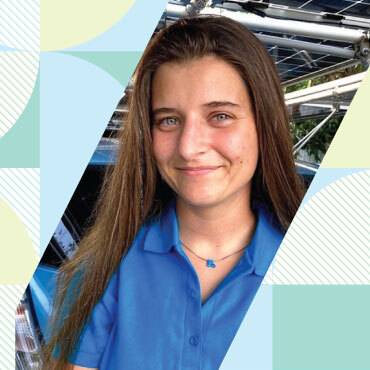
Sustainable design principles aren’t always front and center in the minds of entrepreneurs who are just trying to develop a minimum viable product. Without an intentional connection to their mission, founders may miss out on opportunities to consider the environmental impact of their product. In our E-Team Program, we’re encouraging innovators to think about the environmental implications of their business and design ideas.
These efforts are making a difference. Of our Summer 2022 Propel participants, 64% reported an increase in their use of sustainable design principles in their ventures, and 57% of our Spring 2022 Pioneer participants felt the same, sharing their intent to consider sustainability in how they make their product from the beginning, not just as a distant aspirational goal in the future.
We funded a considerable number of ventures that are directly focused on climate mitigation and adaptation by virtue of the products themselves too, like MissionHydro’s hydrogen-fuel energy storage system that can capture renewable resources like solar and wind much more effectively. Built with an energy storage system that includes sustainable components, the team’s product will allow modern households to store hydrogen energy for later use. The team has taken part in numerous accelerators and pitching competitions, and recently won the Commitment to Sustainable Environment prize at the 2020 $50K Idea Challenge.
Another E-Team generating buzz in the sustainability space is GismoPower, which is developing a portable solar carport on wheels with an integrated EV charger, as an alternative to rooftop and ground mount–based solar energy panels. GismoPower recently won Round 5 of the American-Made Solar Prize, receiving $175,000 in funding to further its work to revolutionize solar and create a new wave of energy “prosumers”—those who not only consume but actually produce energy.
“Right now we are dealing with an energy crisis and immediate action needs to be taken,” said Antonia Ginsberg-Klemmt, the president of GismoPower, who is passionate about efforts to cut carbon emissions. “Back at my house, I knew we were running on sunshine. Why could we not shade my car and create energy from the burning Florida sun at the same time?”
Many of the entrepreneurs we work with are still in the customer discovery stage and likely haven’t yet made decisions on what their manufacturing systems might be. But while materials choices can be made later, we’re doing our part to make sure that these students are thinking early and often about the environmental impact along the full product development life cycle.

We believe that in order to build a deeper and richer environmentally focused approach to innovation and entrepreneurship education, every course and program we fund should be imbued with the tenets of sustainable design. As of 2022, we asked that all Course & Program Grant proposals address sustainability, with the aim of integrating these principles more broadly across all the curricula we support.
We’ve already started to see the impact of this change. In the past year, more than 75% of courses that were offered by our 2022 Course & Program (C&P) grantees featured a curriculum that elevated sustainability-focused principles. Professor David Gray, a C&P grantee from Virginia Polytechnic Institute and State University, received $30,000 to support the development of a new student-led organization that facilitates research into renewable materials and processes. He also serves as a mentor at TORC Robotics, a company working to commercialize safe, sustainable self-driving trucks for the freight industry. “For the vast majority of their courses, the students are very segmented,” said Gray of engineering classes, which don’t offer many opportunities for collaboration on real-world problems. “Students need to use their experience, and as a team, to pull in all the different lessons they’ve learned to make something tangible.”
At the ArtCenter College of Design, grantee Roosevelt Brown used his $30,000 to launch a new course that teaches students the fundamentals of manufacturing processes, including 3D printing, assembly, machining, and injection molding, and how they relate to sustainability. Brown has long been an avid supporter of inclusive innovation, having lectured on COVID-19 rapid test manufacturing for students across majors, countries, and time zones. “Change happens when every person looks in the mirror and asks, ‘What can I do to make this better?’ Then does it,” Brown said.
All of our grantees are continuously working to find new and exciting ways of motivating the next generation of early-stage innovators to center green innovation in the development of their ventures. We are committed to meeting our grantees at every opportunity with the funding and support they need to achieve our shared mission.
“Let us, engineering educators, administrators, and researchers, step onto a path of creating together the means of living and being that ensure planetary health and human livelihood for generations to come,” wrote Linda Vanasupa, C&P grantee and Professor at the Franklin W. Olin College of Engineering. “If not now, when?”
E-Team cohort Winter 2022
Learn how our E-Team Program helped CVPath Surgical create a sustainably designed product for its customizable heart models that help surgeons train before major procedures.
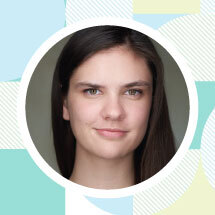
“If you’re providing a better quality piece of fruit, then you’re increasing the total amount of fruit sold, which is good and healthy. And that’s what’s really intriguing about food waste—it benefits absolutely nobody.”
Katherine “Katya” Sizov, co-founder and CEO of Strella Biotech
Sizov, a 2018 E-Team grantee, is the co-founder of Strella Biotech, a biosensor to accurately predict fruit maturity, ensuring produce is packed and distributed before spoiling. She’s joined by a panel of early-stage companies focused on innovations in sustainable food and agriculture.
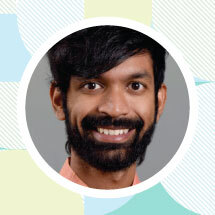
“We’re grateful to be one of five academic institutions to pilot curricular changes based on the Engineering for One Planet (EOP) Framework. Through this pilot project, Arizona State University (ASU) created the foundation to infuse the Framework into project-based learning classes, strategies for integrating the EOP across a curriculum, and generated faculty collaboration to expand the reach of EOP across ASU. From our perspective, thinking about environmental protection and sustainability in engineering isn’t about creating another kind of engineering; it’s just good engineering.”
Darshan Karwat, Assistant Professor at Arizona State University; and Adam Carberry, Associate Professor at Arizona State University


FDA-authorized COVID-19 diagnostic tests developed
COVID-19 tests produced
innovator training programs led with the NSF
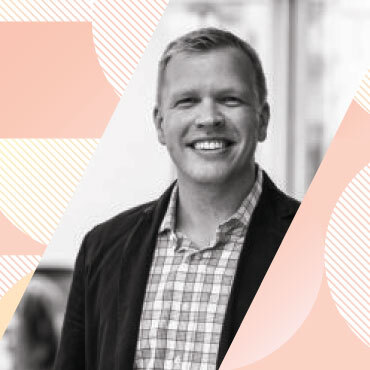
Collaboration is essential to make scientific solutions a reality. It’s through the continued support of our strong federal partnerships—including with the National Science Foundation (NSF), the National Institutes of Health (NIH), and the Department of Energy (DOE)—that we’ve been able to expand our impact.
One of our largest federal collaborations has been with the Rapid Acceleration of Diagnostics (RADx®) initiative. A huge undertaking, RADx began as NIH’s $1.5 billion effort to boost the US COVID-19 testing capability in the face of a global pandemic. With the success of the RADx “Innovation Funnel” model in accelerating the commercialization of diagnostic solutions to the marketplace, NIH is now expanding the model to other areas where rapid development and commercialization of diagnostic and medtech solutions could save and improve lives, including maternal health, RSV, mpox, HIV, and hepatitis C.
We took on a behind-the-scenes role for RADx, lending our expertise and support by coordinating and managing a roster of resources, including expert consultants and vendors, and organizing and tracking workflows. Through this initiative, we’ve helped enable FDA authorization for 49 COVID-19 diagnostic tests—including the first over-the-counter product in late 2021—to market, with 5 billion tests produced, spurring what we like to call the “RADx approach.”
In partnership with the NSF, we wrapped up a total of 20 innovator training programs in 2022. I-Corps™️, an entrepreneurship training program designed for small businesses, has a broad reach—spanning 42 states and the District of Columbia—and each site offers regional support for innovation in infrastructure, resources, networking, and training. We assisted the NSF by delivering the first five Hubs, which serve as a focal point for I-Corps teams to come together and gain skills in entrepreneurship on-campus. We also continued our close collaboration with the NIH to complete three I-Corps cohorts. Our Summer 2022 participants met over eight weeks, culminating in a “lessons learned” presentation to further share insights from the program.
One such I-Corps team, Vaxess Technologies, recently closed on $27 million in Series B funding. It’s developing a patch to administer vaccines and therapeutics, and will begin human trials of the Vaxess MIMIX™️ patch that will deliver the influenza vaccine. In addition, the Global Health Investment Corporation invested $2 million as a strategic investor—bringing the total funding from grants and venture capital that Vaxess Technologies raised to more than $55 million.
It’s important to us that we continue to create more opportunities for collaboration and partnership. We held a convening of the National Innovation Network in June with the support of the NIH and the NSF. There, I-Corps teams and affiliates shared ideas and insights into the need for innovation education, infrastructure, and research. We also held two workshops with the Engineering Research Centers (ERC) program, allowing researchers outside of the industry to think about positive net societal benefits and how to address unintended consequences of their innovation and technology.
We see this work with our federal partnerships as an ongoing collaboration, one that facilitates the growth of a myriad of opportunities and lays the groundwork for improved and expanded ecosystems and networks of support in innovation and entrepreneurship.
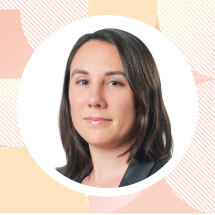
“As a core support partner for the program, we’ve learned how to work quickly and productively to meet critical commercialization needs for new and existing companies. We’re helping move diagnostic and other medical technologies onto pharmacy shelves and into clinics fast—benefitting not just patients, but public health as a whole.”
Rebekah Neal, Director, Program, Biomedical Engineering at VentureWell
Rebekah oversees VentureWell’s participation in the NIH Rapid Acceleration of Diagnostics (RADx) initiative and provides support and expertise across VentureWell’s biomedical engineering and medical technology-focused programs.
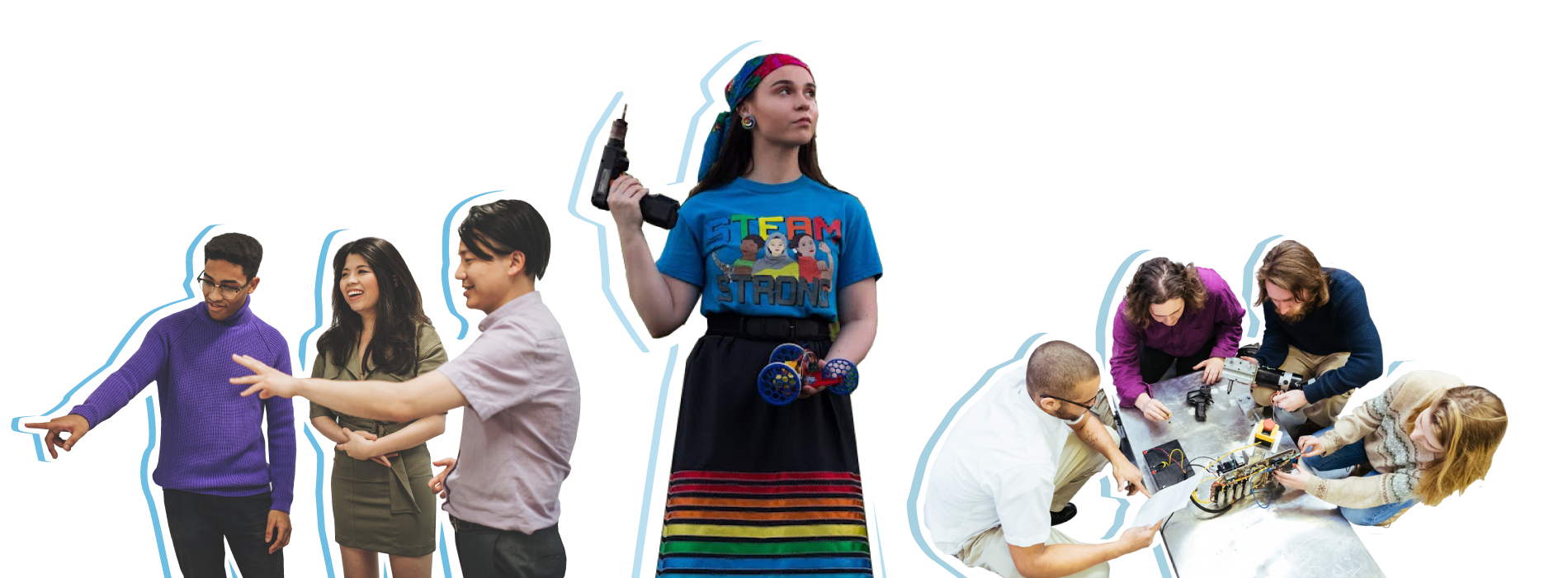

total follow-on funding raised by innovator teams
early-stage innovators were trained by VentureWell
verified patents have been granted to early-stage innovators
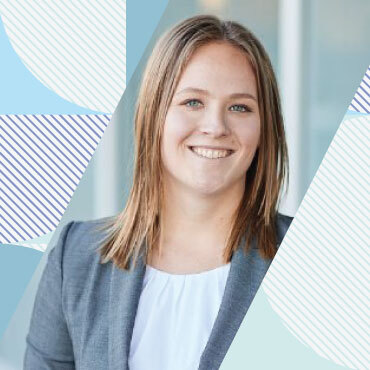
Startup founders are ready and willing to tackle difficult and long-entrenched challenges through creativity, ingenuity, energy, and resilience. All of these qualities were on display at our most recent ASPIRE Medtech workshop. Eleven startups selected for the cohort gathered at TechTown Detroit for the culminating in-person workshop of their five-week hybrid investment-readiness journey, which included access to a robust team of investor-mentors. The startups have all been driven to improve patient health through medical devices, surgical tools, diagnostics and screening tools, telehealth platforms, and global health products.
As the last stage of the VentureWell Accelerator, ASPIRE prepared these startups for the strategic partnerships and investment they need to accelerate the commercialization of their product. It’s thanks in great part to our steadfast ecosystem partner, TechTown, that these founders were able to get the most out of a packed two days with mock board meetings and presentations. TechTown is known for building and advancing the entrepreneurial ecosystem in Michigan, and we recently partnered with them to train angel investors who identify as women, Black, or Latinx in the region through a grant from the U.S. Economic Development Administration (EDA)—further continuing our commitment to strengthening inclusive innovation ecosystems across the country.
Last summer, VentureWell invested in TRIC Robotics, which has developed a non-chemical alternative to treating pests and pathogens. Coined as “a Roomba for the field,” the company’s services offer a more efficient and less harmful way to protect crops from unpredictable pest outbreaks. “Automation can really change the way we do things,” TRIC Robotics CEO Adam Stager said. The company just received two Phase II SBIR awards from the National Science Foundation (NSF) and the United States Department of Agriculture (USDA) following a successful summer of pilots in Central California.
Across our current investment portfolio of 27 companies, 60% are women-led and 25% are led by people of color. We’re looking to scale our investments even further, both by securing more funding to make large investments and by affirming our commitment to fund companies that are led by underrepresented founders and are solving challenges in health equity and climate change.
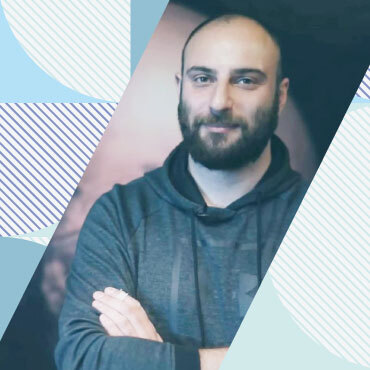
Many innovators around the world lack access to mentorship, training, pitch competitions, and support networks. To address this, we expanded our global reach to train early-stage innovators through the U.S. Department of State’s Global Innovation through Science and Technology (GIST) Initiative. In 2022, we perfected our workshops and training sessions, supporting a total of 39 Innovation Hubs worldwide and welcoming new members into the GIST community from Bhutan, Ukraine, Thailand, and Turkey. We also launched a Catalyst Pitch Competition during Global Entrepreneurship Week, and delivered three virtual Global Innovation through Science and Technology (GIST) program cohorts and two GIST Investors trainings.
As we connect GIST participants with all the resources and opportunities we offer locally, these innovators are developing major solutions in their own communities. Sadaf Naz, a GIST participant from Pakistan, founded Her Ground as an easy-to-use consumer platform for menstrual hygiene products, which can be purchased online or even via text message. In Pakistan, 79% of women don’t have access to buy sanitary pads—an issue Naz aims to solve. “The best thing about [our] reusable cloth pads is that they were made by women in marginalized communities,” she said, having distributed Her Ground products to women affected by the recent flooding in Pakistan.
Vamekh Kherkheulidze, another GIST participant and CEO of Elven Technologies, hails from Georgia originally. He started building high-tech flameproof firefighter uniforms that are two times lighter and significantly cheaper than uniforms currently on the market. When he came to Chicago, Illinois, for the GIST Business Incubation, he was inspired by the tech and, of course, his fellow innovators. “It’s a great network of engineers,” Kherkheulideze said of his experience. “Anytime I have questions, I just have to ask, and they have a very friendly network. I get plenty of answers.” He’s currently in Sacramento, California, exploring the expansion of his venture by using the same flameproof material in electric cars, proving that GIST can truly be a launching point.
We continued that same momentum by partnering with the International Fund for Agricultural Development (IFAD) this spring, leading two half-day workshops with continued mentorship support of the 28 Stage 1 winners of the 2022 IFAD Innovation Challenge. Teams were tasked with identifying problems and proposing solutions under five “tracks,” including data, finance, climate change, and culture change. Winners included DigitalPhoneBook, which currently connects more than 80,000 farmers with a mobile phone–based financial service, and DiGi Climate Risk, which is working to educate and offer resources to smallholder farmers who need support in adapting to climate change.
On the Department of State (DOS) side, we’re working together to re-scope our work in Ukraine due to the war. As we speak, 15 Ukrainian innovators are currently being hosted in the US for six months to receive training, support, and mentorship, in what will be our longest and deepest Business Incubation program ever. Perhaps our strongest showing was the Ukrainian delegation to WebSummit Portugal, the largest tech event in Europe, where 24 Ukrainian startups participated. First Lady of Ukraine Olena Zelenska said: “This is why the Ukrainian pavilion at WebSummit is impressive. All of [these teams] prove that the time to invest in Ukrainian IT is now.”
Providing support to innovators where they are has allowed us to create a more diverse ecosystem within the innovation and entrepreneurship space, connecting a dynamic group of changemakers to their peers, mentors, trainings, and even greater funding.

For many early-stage innovators, navigating the process of applying for funding can be fraught with obstacles. This is particularly true for students who haven’t had exposure to entrepreneurship programs or networks, or may be enrolled in a university with fewer resources to help them bring their innovative idea to life. Starting in the fall, we began piloting Access, a new initiative generously supported by The Lemelson Foundation and Qualcomm.
The program, which prepares students to submit competitive grant proposals, offers asynchronous learning opportunities through an online course as well as live mentorship from VentureWell staff and connection to a wider network of peers. It’s self-paced and specifically designed to open the door for entrepreneurs in their earliest stages of development. And in an effort to make the program available to as many students as possible, we made sure Access was free to all participants.
“Access removes barriers for passionate problem solvers,” said Justin McLeod, VentureWell Program Officer for Access. “We want to provide students with the opportunity to transform their ideas into a product that changes the world.”
By focusing on reaching students who are just beginning to consider the potential of their venture, we’re setting up would-be founders for success as they begin their startup journey.
E-Team cohort Fall 2017
Learn how our E-Team Program helped Emme create a birth control pill smart case to reduce the rate of missed oral contraceptive pills.

“Many student innovators want to continue exploring the possibility of turning their idea into a venture, but they also question: Is that really the next best step for me at this stage? Not everyone has the luxury of choosing to pursue their innovation right away, which is why it’s so important to myself and my colleagues that we continue to support inclusivity efforts in entrepreneurship.”
Sarah Wharmby, Program Officer at VentureWell
Sarah Wharmby supports VentureWell’s early-stage entrepreneurship programs, providing training for innovators in the Pioneer and Propel stages of the VentureWell Accelerator program. She recently launched Sarah Says, a new series where she addresses commonly asked questions raised in our E-Team workshops.
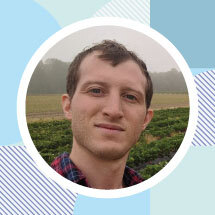
“The ASPIRE program came at the perfect time for us. We were in a position to start looking for investment, but we had no idea where to get started. ASPIRE allowed us to talk one-on-one with mentors and learn from other teams in the program. It gave us a lot of guidance in terms of how to get our messaging right so that it made sense for investors and put us in a really good position in terms of the materials we needed to prepare for that investment stage.”
Adam Stager, CEO of TRIC Robotics and E-Teams grantee
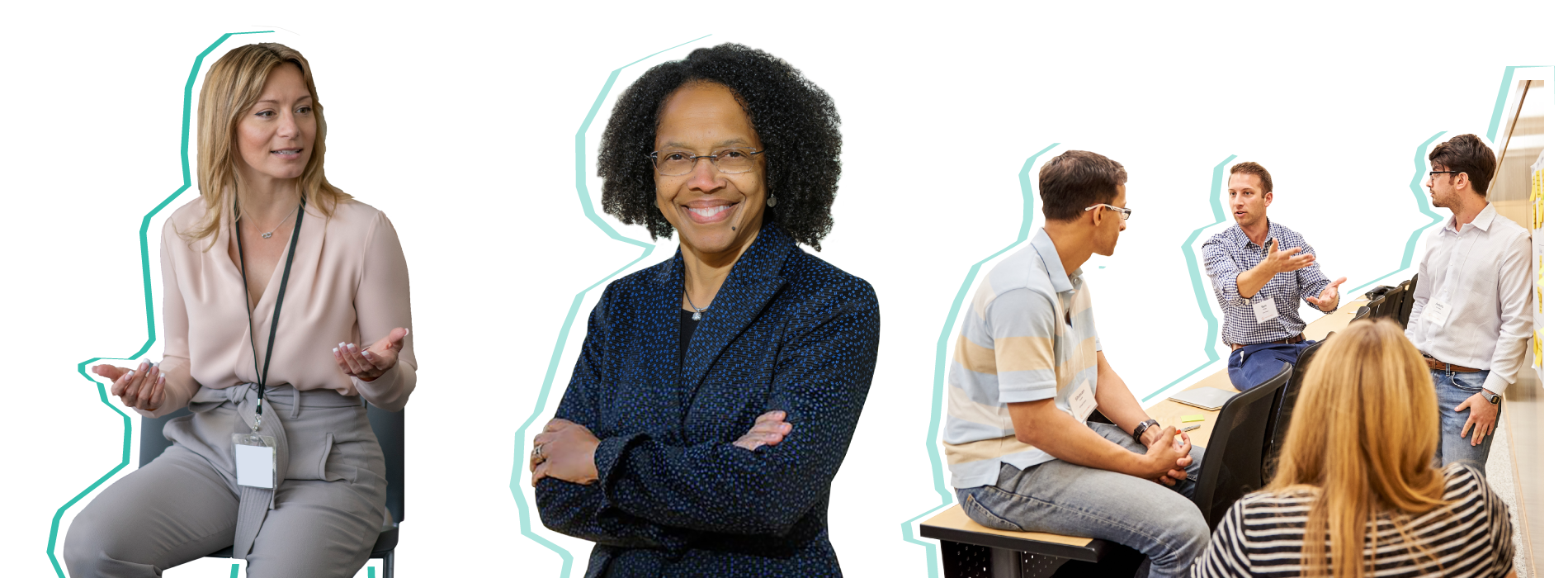

representatives across I&E spectrum attended OPEN since 2012
of Course & Program Grant applicants in 2022 were first-timers
people attended OPEN in 2022
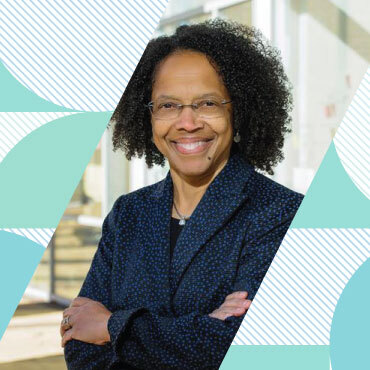
To effect lasting change at colleges and universities, it’s crucial to support the innovators and mentors making it all happen. Funding, training, communities of practice, and convenings are all ways to address this need, and we’re working hard to foster ecosystems on campus that will serve as incubators for years to come. We call this work “collective impact,” with the efforts of a single group working together, often with very different perspectives and backgrounds, to accomplish a common agenda.
One of our proudest achievements in this area is hosting our annual OPEN conference, which calls together faculty, administrators, staff, and students in STEM to share innovation and entrepreneurship experiences and research, learn best practices, and forge new relationships with each other. At our 2022 convening, participants reported that attending OPEN deepened their personal and professional network, expanded their teaching methods (particularly surrounding sustainability), inspired them to weave entrepreneurship into their courses, and spurred their credibility in the field.
Hundreds of attendees came together for two days, where many of our peers and colleagues dug deep to discuss the importance of belonging in innovation—not just for their current students, but in their own personal experiences as well. At one of the plenaries, President of Olin College of Engineering and VentureWell board member Gilda Barabino shared: “In my chemistry class, women were ignored and made to feel like chemistry was not for them. To some extent, I pursued a bachelor’s in chemistry to prove my male chemistry teacher and others wrong.” This conversation continued in our Cultivating Inclusivity series, which became a guide for faculty and staff to enhance student belonging and inclusion on campus.
“I’ve been going to OPEN since before it was OPEN—back in the NCIIA days. One of the reasons why I love the conference is because it focuses on students,” Nik Rokop told us. He’s the Director of the master’s degree program of Technological Entrepreneurship at Illinois Institute of Technology, and he’s spoken on panels at both OPEN and the Deshpande Symposium.
At the 2022 Deshpande Symposium, attendees came together for three days in Cleveland, Ohio, to participate in workshops and panel discussions on topics such as developing entrepreneurial cultures and ecosystems within higher education, and university research commercialization and startups. There, we officially announced our new role as organizers of the Symposium. Speakers reported that they “thoroughly enjoyed presenting,” while others said the conference was “full of insights, inspiration, and fruitful connections.” Attendees also “met some outstanding business catalysts” at Deshpande, and among those who won an award, said that the recognition “opened a lot of doors” for them professionally.
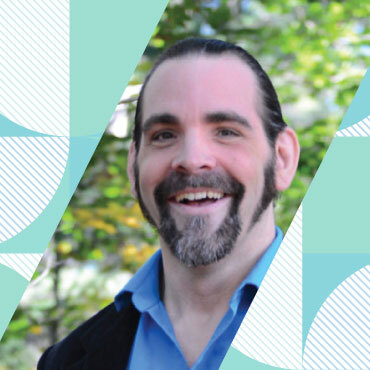
Most college labs don’t offer real-world sustainable design opportunities for students. That’s why we developed the week-long Green Launchpad Educators Workshop with faculty, staff, and administrators in mind, equipping them with the knowledge and experience needed to integrate sustainable design into their curriculum—and ultimately, to support the next generation of innovators and changemakers. “I left informed, inspired, and hopeful for continuing collaboration and relationships with my colleagues,” said Ilya Avdeev, Associate Professor of Mechanical Engineering at the University of Wisconsin-Milwaukee.
Avdeev is one of many Course & Program grantees who were invited to participate in Green Launchpad. This past year, grantees from 12 institutions took part in the workshop, and we also opened registration to the public, furthering our commitment to expand access to our tools and resources. And we’re committed to keeping that momentum going.
In the spirit of fostering that ecosystem, we’re hosting monthly communities of practice to develop a faculty-based, peer-to-peer support model for all our Course & Program grantees. These workshops are designed to provide faculty and staff with a clear plan for achieving their sustainable design curricula goals, and the confidence to teach sustainable design concepts to their students. These learnings stand to offer students immersive hands-on experiences and opportunities to build technologies and businesses that benefit people and the planet.
We realize that making changes to any established curriculum isn’t easy. Time, funding, and support all introduce challenges that can be difficult to overcome. That’s why we’re constantly thinking about how we provide our resources, restructuring our workshops to offer self-paced, asynchronous learning opportunities—all with our faculty partners in mind. Green Launchpad participants received slide decks, video content, examples, collaborative activities, and other teaching resources, in addition to networking opportunities. That’s our commitment to providing sustainable design tools in higher education for the modern age.
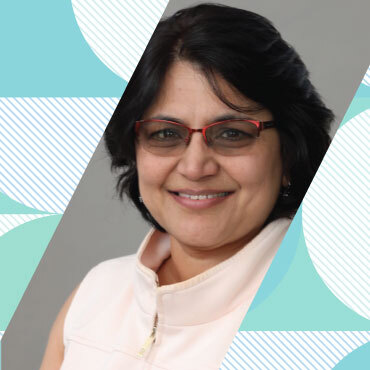
Despite best efforts, many university systems fail to support innovators from underrepresented groups who are prepared and motivated to solve global threats that require immediate and significant action. We addressed these gaps in diversity and equity by targeting the majority of our Course & Program Grants to the following institution categories or groups: community colleges; Tribal colleges; HBCUs, predominantly Black colleges and universities, and Hispanic-serving institutions; teams who self-identify as members of one or more underrepresented groups, including Black, Latinx, Indigenous people, women of any racial background, and people from low-income backgrounds; and qualified universities or colleges that have never previously received a Course & Program Grant.
We awarded more than $307,000 to faculty and staff from 13 institutions this past year, all of which are developing supportive, inclusive opportunities for students creating innovations for positive social and environmental impact. This funding supported 17 different programs in 2022, including one led by Dr. Steven Jiang from North Carolina Agricultural and Technical State University. He’s introducing his class to sustainable design concepts through the development of innovative solutions to address food insecurity in the US, which disproportionately affects minority populations. Jiang continues to speak on several subjects related to diversity, including ways to combat confirmation bias for local food banks.
At the CUNY Bronx Community College, Dr. Harini Mittal received a $29,789 grant to support leading a new class that teaches students how to address pressing socioeconomic and environmental issues in low-income communities through sustainable design. “We are grateful to VentureWell for awarding us a grant to create a new interdisciplinary course that teaches students how to use sustainable design tools to create planet-friendly products and services,” Mittal said.
Both professors embody the work we’re driving at: supporting diverse educators who are thinking about the impact on underrepresented students and the underserved communities their ventures reach. Ultimately, we will continue to provide funding and invest our time and resources into addressing diversity and equity gaps across all our programs.
Course & Program cohort Fall 2021
Learn how our Course & Program Grant helped empower faculty working to develop Peace Lab Studio, a new course where students in the US and Kenya are collaborating on climate justice innovation.
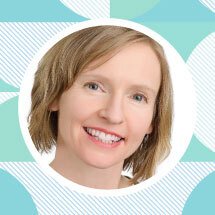
“Lack of a solid research base for entrepreneurship education places faculty in the compromising position of designing for the inclusion of I&E content in their classes without the guidance of proven exemplars. This also makes it challenging for faculty to argue for the importance of including I&E, since there is limited robust evidence of the benefits to students. We’re sharing research that can help build a case for, and hone, your I&E teaching efforts and advance your educational research.”
Victoria Matthew, Senior Program Officer at VentureWell
Victoria Matthew leads VentureWell’s Community of Practice and social learning initiatives, with a focus on providing faculty with resources, tools, and a support network. She highlights learnings from the OPEN 2022 workshop “Studying the Impact of STEM Entrepreneurship Programs on Individuals: We Can Do Better!”
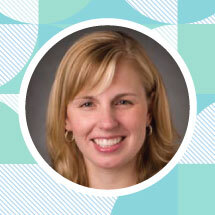
“One of the major challenges for those working in entrepreneurship education regards assessing the impacts of entrepreneurship programs, courses, and activities on our students. Our research will help to bridge the gap between entrepreneurship education and the social sciences through the development of strong partnerships. We are hoping that these partnerships between practitioners and social science researchers will help enable the identification and development of evidence-based tools and processes for higher-quality assessment in entrepreneurship education.”
Sarah Zappe, Assistant Dean for Teaching and Learning and the Director of the Leonhard Center for the Enhancement of Engineering Education at Penn State
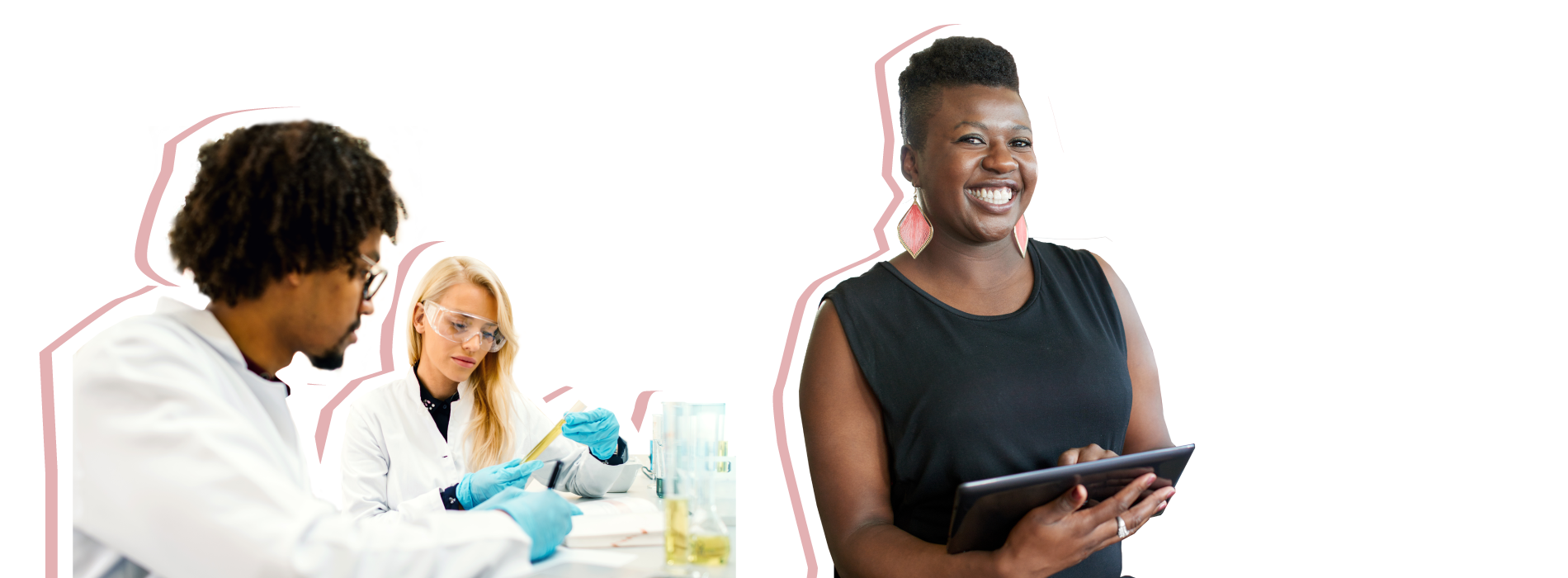
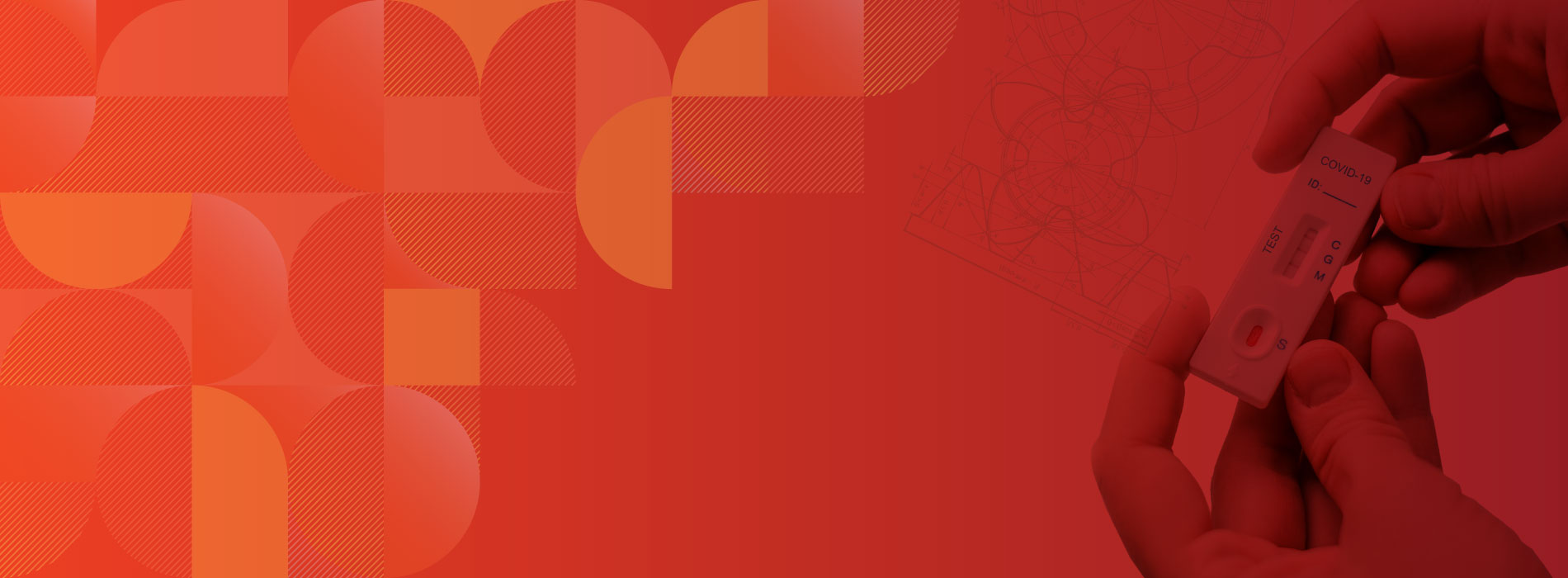
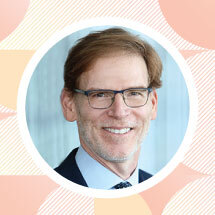
“The RADx process has been a remarkable public-private partnership that’s really brought in multiple government institutions and also brought in the private sector and contributions from a variety of different citizens who have expertise in many, many different areas. [With] over 900 expert contributors and consultants, it’s one of the best examples of a public-private partnership with an open science community-based effort to really focus on testing and advancing diagnostic tests to meet a national need.”
Dr. Bruce J. Tromberg, Director at the National Institute of Biomedical Imaging and Bioengineering
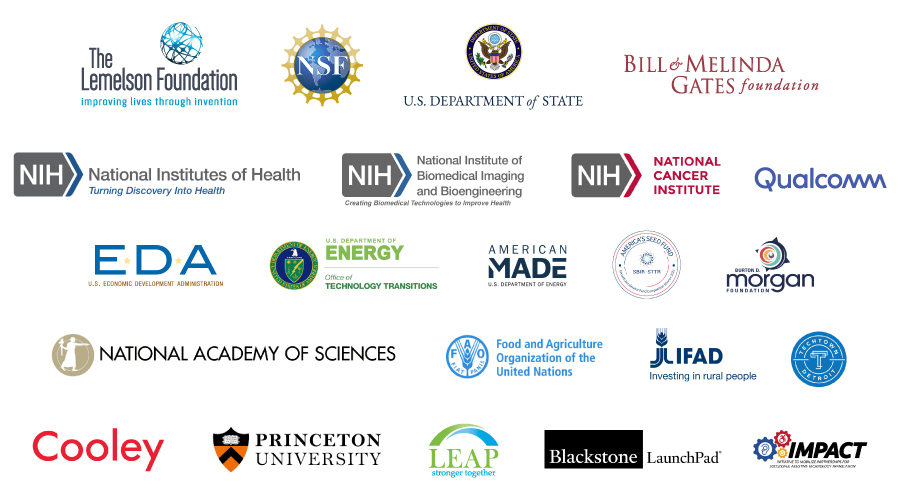
By continuing to use the site, you agree to the use of cookies. Read More